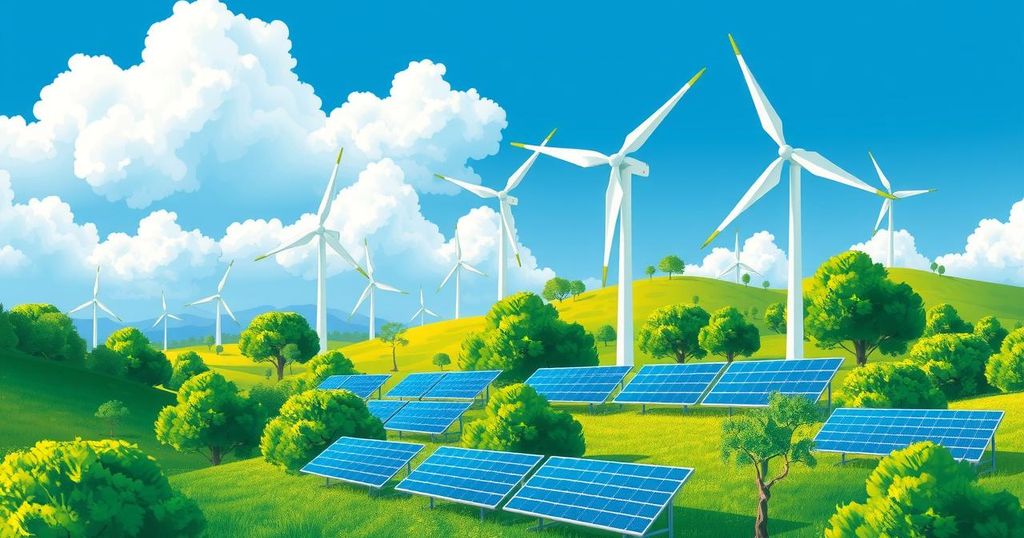Wärtsilä’s report outlines a roadmap for Nigeria to achieve 100% renewable energy by 2060, necessitating significant investment and policy reform. The proposed system includes renewables, energy storage, and gas support, projected to lower electricity costs and eliminate carbon emissions. Universal access to electricity could be achieved by 2032, enhancing Nigeria’s energy landscape.
Wärtsilä has released a report, “Nigeria Leading Africa to Net Zero,” which outlines a comprehensive plan for Nigeria to achieve 100% renewable energy by 2060. This initiative is essential for Nigeria to address its energy demands while ensuring universal electricity access. The report emphasizes the importance of a strategic, data-driven approach to energy planning for long-term sustainability and cost-effectiveness.
The proposed optimal power system for Nigeria involves 1,200 GW of renewable energy capacity, complemented by 283 GW of energy storage and 34 GW of engine-based plants for grid stabilization. Implementing this approach is projected to lower electricity generation costs by 74% by 2060 compared to 2022 and eliminate carbon emissions.
Wärtsilä’s research highlights the vital role of Nigeria’s domestic gas resources in facilitating this transition. These gas reserves can serve as a cost-effective transitional energy source until power plants adapt to operate exclusively on green hydrogen by the early 2040s.
Wale Yusuff, Managing Director of Wärtsilä Nigeria, stated, “If the power system expansion roadmap presented in the report is successfully implemented, by 2060 Nigeria’s power system will be fully decarbonized and able to meet the energy needs of our country’s rapidly growing population.” He also noted that achieving universal access to electricity could be realized by 2032, superseding the current reliance on diesel generators.
However, achieving this ambitious energy transformation will necessitate significant investments, estimated at $18.7 billion by 2030 and $425 billion by 2060. Wale Yusuff cautioned that, “Attracting that level of investment is possible, but not without significant policy reforms.” He called for improved governance to reduce investment risks within Nigeria’s complex energy landscape.
With its significant gas reserves and renewable energy capacity, Nigeria possesses the necessary resources for a successful energy transition. Strengthening power transmission systems, creating a robust policy environment, and implementing a data-centric expansion plan focused on renewables and flexibility will enable Nigeria to achieve its ambition of providing affordable and decarbonized energy access to all citizens.
In conclusion, Nigeria stands poised to lead Africa in the transition to a renewable energy future by 2060. With a detailed roadmap provided by Wärtsilä, the country can significantly enhance its energy capacity while reducing costs and carbon emissions. Successful implementation will require substantial investments and policy reforms to create a conducive environment for sustainable energy development.
Original Source: www.itnewsafrica.com






